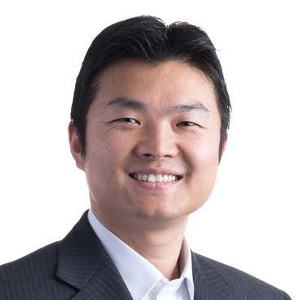
06 Dec Interview with Tao Chen of Paragon Genomics, Inc.

Mr. Tao Chen is a serial entrepreneur with unique startup experience in both life science and IT industries. Currently at Paragon Genomics, Tao is leading a team of talented scientists and business professionals in developing and commercializing breakthrough targeted sequencing technologies. The Company’s patented target enrichment assay products have been adopted by more than one hundred NGS labs across the globe for various applications such as cancer liquid biopsy, inherited disease testing, drug discovery and agrigenomics. Before starting Paragon Genomics, Tao had over 15 years of technical and business experience in the life science industry, holding leadership positions from R&D, corporate development to product management at various organizations. Read his full bio.
Interview with Tao Chen of Paragon Genomics, Inc.
Q: Once sequencing has been validated as a clinical solution via trusted workflows, and coinciding with the technological developments driving costs lower, we can expect accelerated human genome profiling for clinical Dx. How soon, do you think, will we see accelerated growth and what can we expect?
A: For whole genome sequencing to be a reliable clinical tool, it will largely depend on the cost of sequencing the genome and our ability to interpret the data. Currently, it costs roughly $1000 to sequence the human genome but that usually gives you raw data. In order to make sense of the data, it could take another $500 to analyze and interpret. All the costs mentioned above don’t include the margins that a sequencing lab might charge physicians or consumers. At the same time, the underlying science of genomics also needs to catch up as the sequencing cost continues to drop in the next few years. It might take another 5-10 years for us to really see a mass adoption of whole genome sequencing in the clinical setting when the cost of sequencing and interpreting the human genome significantly drops to $100. Meanwhile, genomics education for healthcare providers can be equally important before they can understand and grapple with this new tool.
Meanwhile, another similar technology called targeted sequencing has already seen accelerated growth globally, especially in the areas such as non-invasive prenatal testing and cancer testing. The concept of targeted sequencing is basically to only sequence specific and/or clinically relevant regions of the genome. By doing so, it significantly lowers the cost of sequencing and the difficulty of analyzing the data. Paragon Genomics’ cutting-edge CleanPlex® technologies are gaining a lot of traction in the targeted sequencing space.
Q: Tell us more about your organization/company?
A: Paragon Genomics, Inc. is focused on developing breakthrough target enrichment technologies and products for the global NGS community. Our proprietary CleanPlex technology enables NGS customers to develop targeted sequencing assays that are accurate, sensitive, simple, and yet cost effective. Our technology is applicable to many fast-growing NGS segments such as cancer research, liquid biopsy analysis, biomarker discovery, genomics-guided breeding analyses, companion diagnostics, and immunotherapy monitoring.
Founded in 2015, the company is headquartered in Hayward, California. Our goal is to enable precision medicine research and science with our technologies. Our team is composed of industry veterans and academic experts who previously worked with well-known companies and institutions such as Novartis, Applied Biosystems, Siemens Healthcare, Stanford and Harvard.
Q: What patient population are you serving and which services are you specializing in?
A: We don’t serve patients directly. We provide custom panel design service and target enrichment product offerings to researchers and biopharma scientists who are actively working in the fields of oncology, precision medicine and clinical research.
Q: What makes your healthcare/company service unique?
A: We have very unique and patented target enrichment technologies that can be applied to many different areas ranging from cancer liquid biopsy to genomics-guided breeding analyses. Our custom NGS assay design service turnaround time is the shortest in the industry since it usually takes only 2-3 weeks for us to deliver an NGS panel to the hands of a customer.
Q: What is your role at and what excites you about your work?
A: I am CEO & Co-founder of the company. Every day, I am excited and honored to work with a very talented team at Paragon Genomics. We have an interdisciplinary team including molecular biologists, bioinformaticians, computer scientists, marketing and sales specialists. We learn from each other on a daily basis. As a team, we are changing how NGS labs are doing targeted sequencing and ultimately making targeted sequencing easier, faster and more affordable. We also get the chance to work on many interesting custom research projects with academic or translational researchers whose work might further illuminate the underlying mechanism for various diseases such as cancer, cardiovascular and rare diseases.
Q: How will genome profiling change the standard-of-care in the near and/or far future?
A: I can touch a bit on whole genome sequencing and speak in more details to targeted sequencing. If whole genome sequencing becomes much more affordable and its data is easier to interpret perhaps with the aid of AI, I would envision a future society where almost everyone will get his/her whole genome sequenced at birth and this genomic profile will follow that person for his/her entire life. This genomic information will be saved in the cloud together with other medical records of this person and can be retrieved by healthcare providers when needed under an appropriate consent mechanism. This information can guide many medical decisions such as how much warfarin to administer to the patient due to the fact each person with his/her unique genetic profile might metabolize warfarin at a different rate.
Whole genome sequencing is generally used to obtain people’s germline genetic profile, but not somatic mutations involved in diseases such as cancer. This is where targeted/deep sequencing can play an important role since it can focus on specific regions of the genome such as cancer-related genes and sequence really deep so as to detect low frequency alleles from 5% to even 0.1% in the germline DNA background. With the cancer specific mutations detected, oncologists are then able to prescribe target therapies designed to specifically treat those types of mutations. This is becoming the standard-of-care for cancer right now. The recent exciting development in the cancer testing space is with using liquid biopsy. As some solid tumor cells die in the human body, they often shed their mutated DNA into the blood stream. We call those cancer DNA circulating tumor DNA (ctDNA). Many cancers are diagnosed when they have become incurable. By drawing a tube of a cancer patient’s blood and conducting deep sequencing of the extracted DNA, scientists can potentially detect ctDNA and identify cancer at an early stage when it is still treatable. This will also enable cheaper and easier monitoring of cancer progression as solid tumor tissues can sometimes be both difficult and expensive to obtain.
Due to its highly sensitive and accurate nature, Paragon Genomics’ CleanPlex UMI technology designed for detecting low frequency mutations truly opens the door for early cancer detection and monitoring of cancer recurrence via “liquid biopsy”.
Q: What are some of the main challenges we need to overcome to see widespread adoption of whole genome profiling across the clinic? How can the community come together to advance its adoption?
A: Mainly cost, data analysis and regulatory approval. See some of the analysis in answers to question 1.
Q: Why should we sequence the entire population, including the healthy ones?
A: When some of the hurdles such cost and data interpretation are eliminated, sequencing data will be really just like basic individual information such as weight, heart rate, etc. Fortunately, the germline genetic information will never change as people get older and it will be the basic information that healthcare providers will need in order to tailor treatment plans or therapies to that individual’s genetic profile. This is the essence of precision medicine. Of course, outside of healthcare, genomic information can be used for other purposes too. For example, there could be future vendors who want to tailor their nutritional or cosmetic products to people’s genetic profiles. It is up to those individuals whether they want to grant those vendors the access right to the entire or a part of their genomic information.
Q: When thinking about the field you are working in, what are some recent breakthroughs that are propelling the field forward and how will they impact healthcare?
A: As I mentioned above, non-invasive prenatal testing and cancer liquid biopsy are the two key breakthroughs in the NGS space. Sequencing is also being applied to many other diseases such as rare diseases, cardiovascular diseases, infectious diseases and so on. For example, there are companies that are developing sequencing assays for detecting more than 1000 different pathogens in one sequencing run as opposed to one or few pathogens in a real-time PCR assay. This can dramatically change how we diagnose and treat infectious diseases. With sequencing being more and more affordable, we will see more advancement in understanding our genome and applying the knowledge to different diseases. In addition to reading the genomes of human or other species, there are technologies such as CRISPR that can now edit genes. This can be especially useful for single-gene diseases where one gene needs to be edited. One key technical issue with CRISPR gene editing is its off-target events which can introduce new mutations into the genome. Targeted DNA sequencing can actually be used as a quality control tool to detect off-target editing events. Dr. Alex Marson, a gene editing expert at UCSF, is using CleanPlex technology for such quality control purposes. At the same time, there are potential ethical issues when it comes to editing human genomes, so we need to be really careful about what we currently can and cannot do with this wonderful technology.
Q: Is there anything else you would like to share with the PMWC audience?
A: At Paragon Genomics, we are really passionate about what we do. The technologies and products we develop are solving key pain points in the target enrichment space. NGS labs and scientists need simpler, faster, and more accurate target enrichment assays for various applications. As we constantly discover new biomarkers, scientists would like to quickly add new content to their existing NGS panels or come up with totally new panels. Many existing target enrichment technology providers fail to deliver quality custom panels in a timely fashion. At Paragon Genomics, we can get a high-quality custom NGS panel to the hands of a customer within 2-3 weeks, which was unheard of in the industry. We are also partnering with bioinformatics software companies such as SOPHiA GENETICS to provide a whole solution to our customers. Ultimately, our goal is to enable precision medicine research and science. I look forward to the discussions at PMWC!






